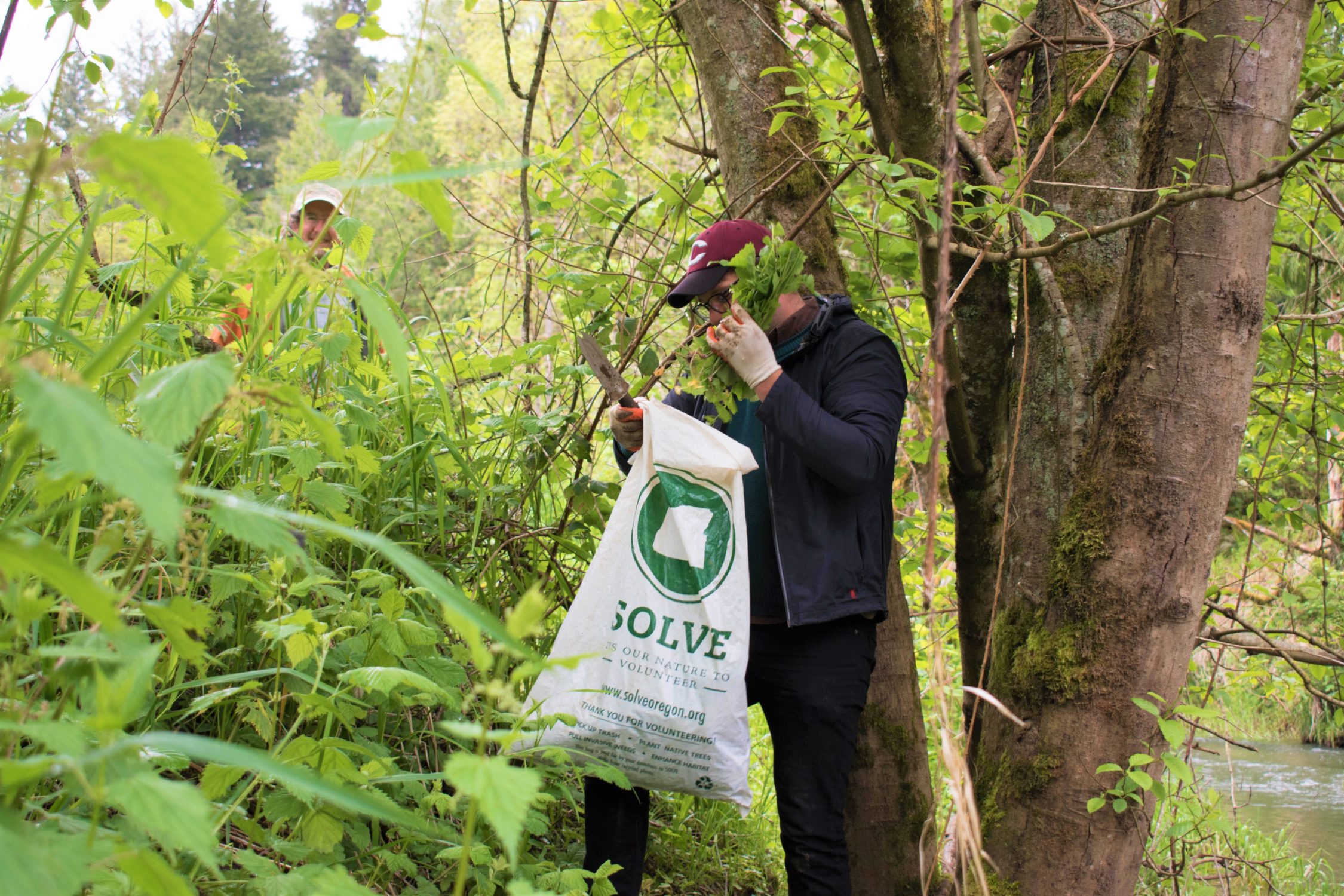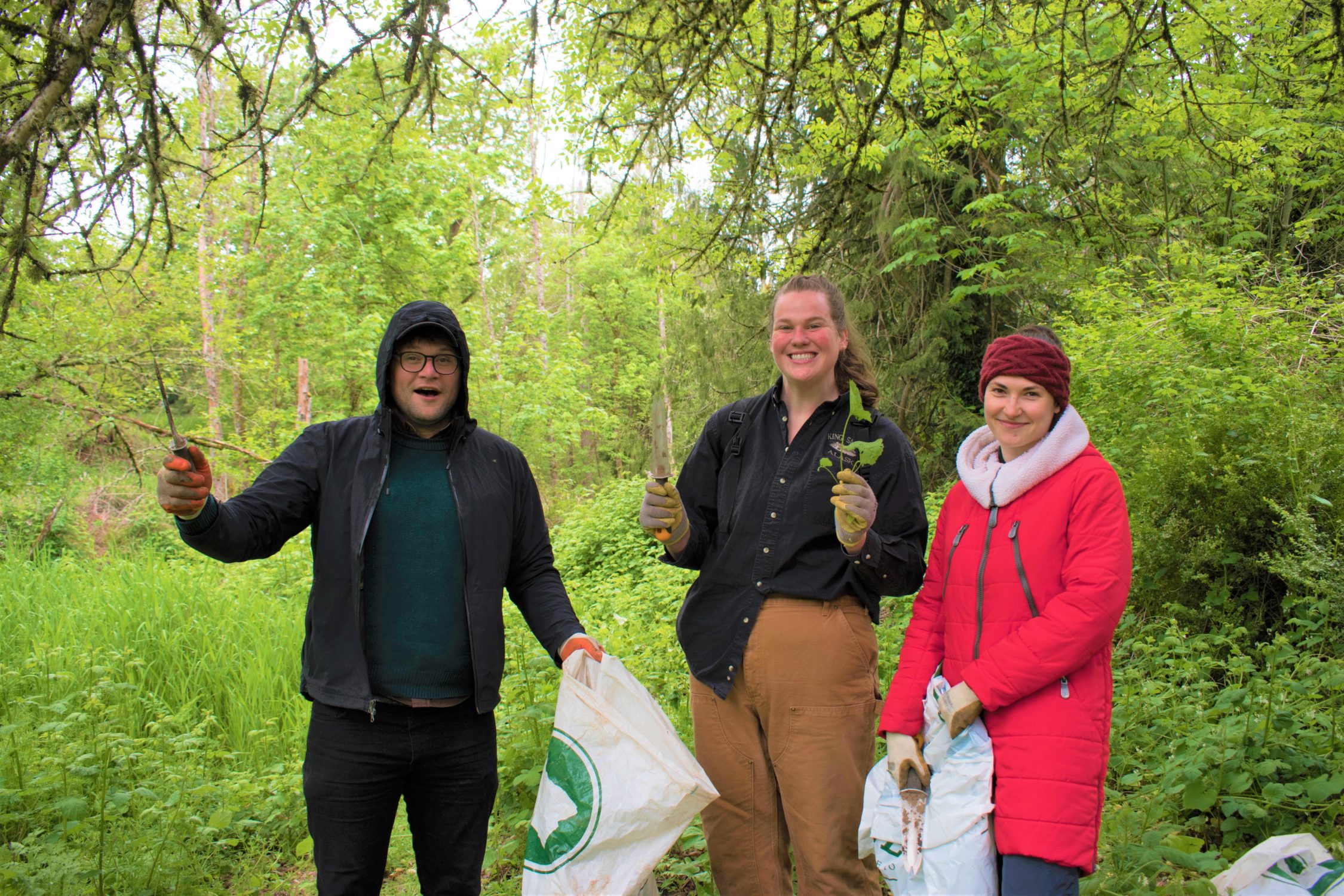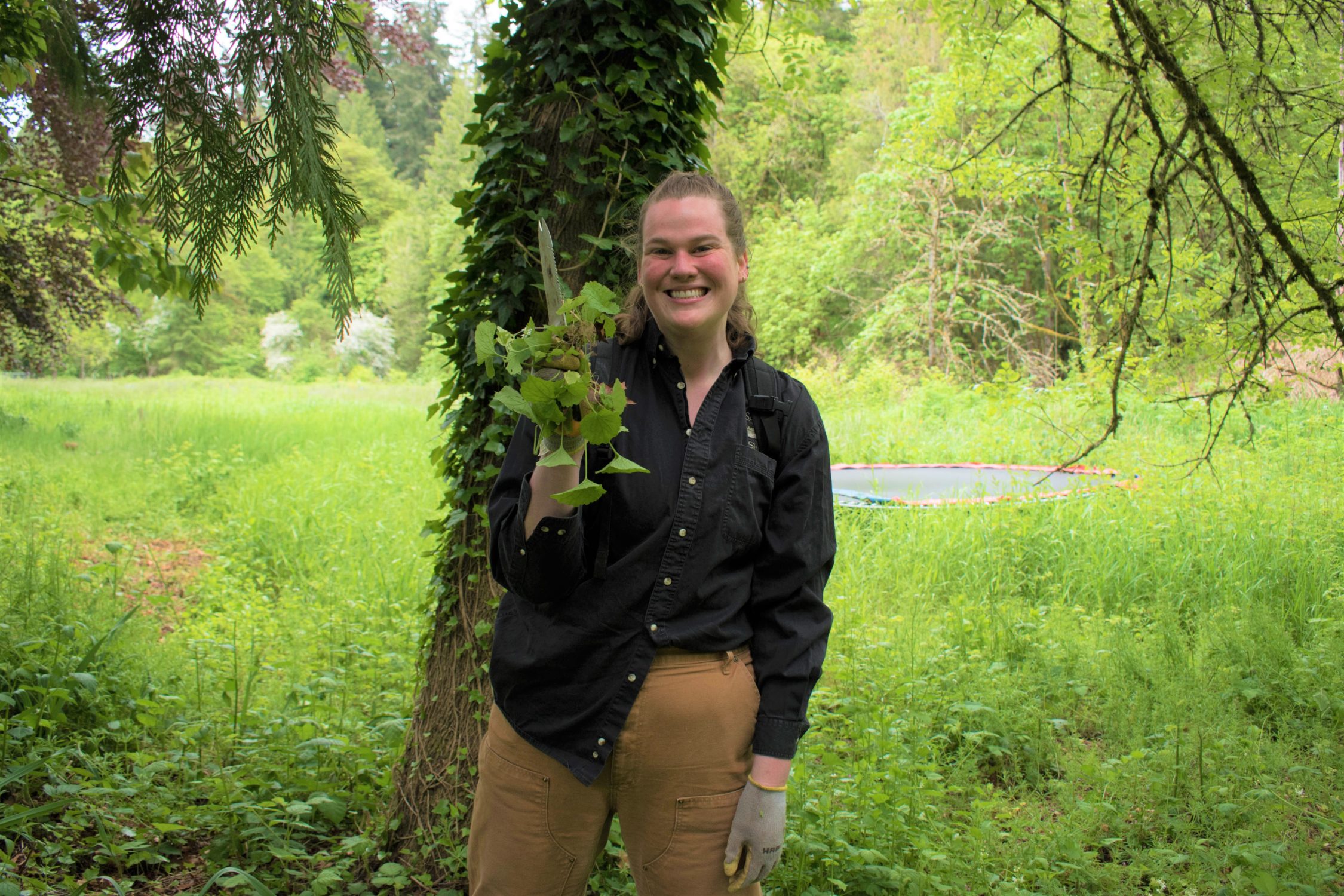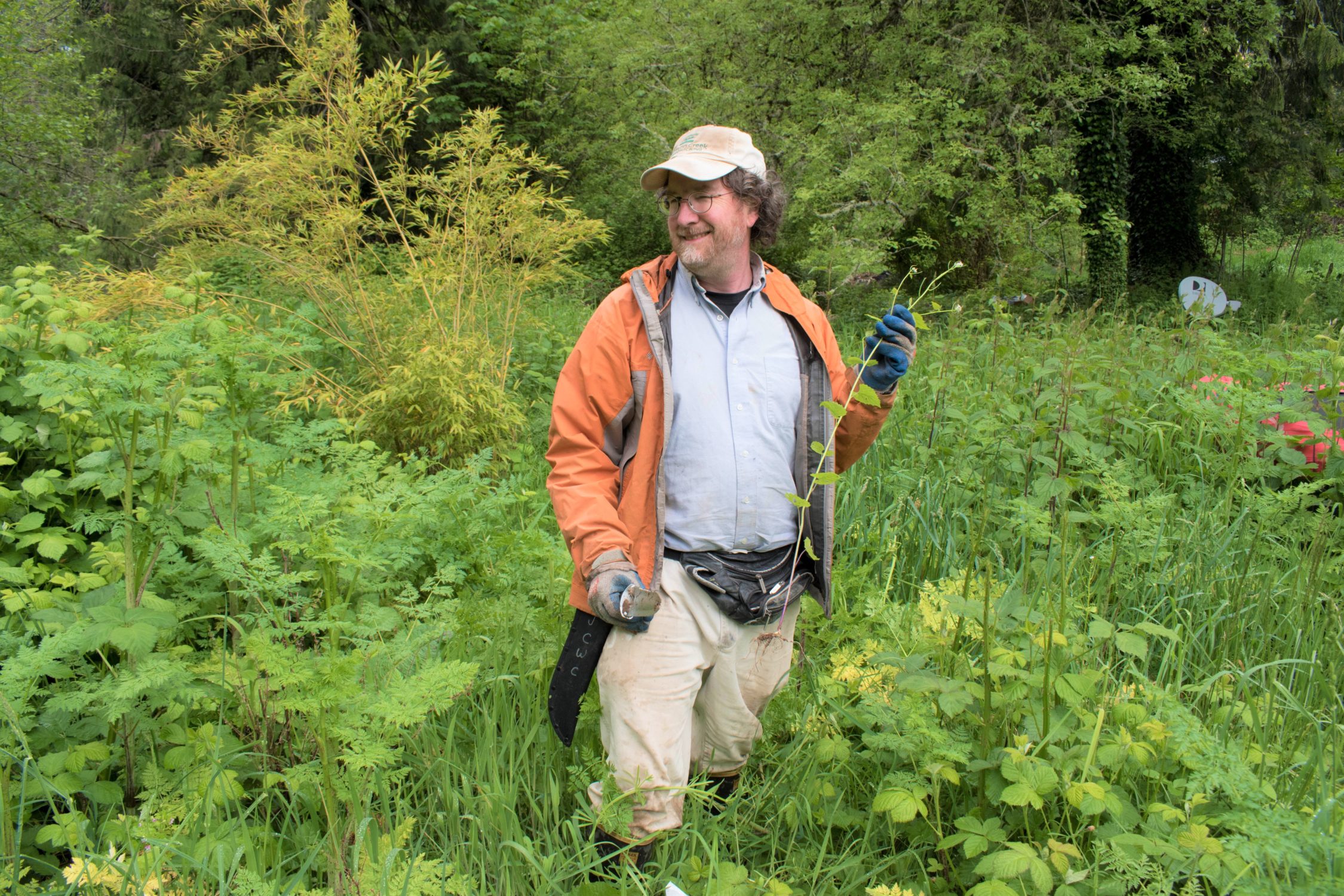Written by Marlee Eckman
Garlic Mustard, Alliaria petiolata, is a prevalent non-native species in the watershed with alarming impacts on other plants. This weed is known to be allelopathic. The garlic mustard roots produce chemicals that are toxic to other plants, which aids its rapid spread. This can prevent the establishment of other plants and allows garlic mustard to completely dominate the understory.

Johnson Creek Watershed Council has been combating this weed since 2009 and continues every year to remove it from the watershed. Recently, JCWC has been the only organization in Portland solely hand pulling the weed. Now, 13 years later, we are seeing a huge decline in its numbers from repeatedly removing it.
Our Garlic Mustard Interns are a HUGE reason why we have been able to so effectively control this weed. This year we have the help of four interns that are visiting a total of 60 sites, from Regner Rd in Gresham to the Eastmoreland neighborhood in Portland.

I interviewed Annie O’Shea, one of our interns this year, to talk about her experience as a Garlic Mustard intern.
Marlee: Why did you apply to become a Garlic Mustard intern?
Annie: I applied to get out and do some hands-on work between computer time and better familiarize myself with riparian plants in the Portland area, as I am new here.
M: What skills or knowledge have you gained?
A: I can identify garlic mustard in my sleep! I have also gotten very good at avoiding stinging nettle. Noah has done a great job of leading by example in field work and public outreach, which was cool to see in action.
M: How do you plan on using your experience as a GM intern?
A: I am doing some other invasive plant removal work this summer, and I will bring this experience with me to help inform my new role.
M: What has been your favorite part of the internship so far?
A: I love being in the field and I have had a great time getting to know everyone involved. This is a fun team and everyone has such different backgrounds, and it’s so cool to learn about what brought them to environmental science.
M: Have you been met with any challenges and how have you overcome those challenges?
A: The biggest challenge by far is the nettle. I have gotten hit several times and I find it so distracting for a full day afterwards!
M: Who would you recommend this internship to?
A: I’d recommend this to anyone looking to network a little, anyone who loves field work or wants more experience in the field, and anyone who wants to learn more about invasive plants. If you like getting a little dirty and find great satisfaction in weed removal like I do, this is perfect for you.

Since 2016 our Garlic Mustard Interns have dedicated over 1,000 hours to controlling this plant. So much time, effort, and passion have been put into this project and we wouldn’t see the results we have today without them! Thank you Noah, JCWC’s Riparian Program Manager, and thank you interns!

